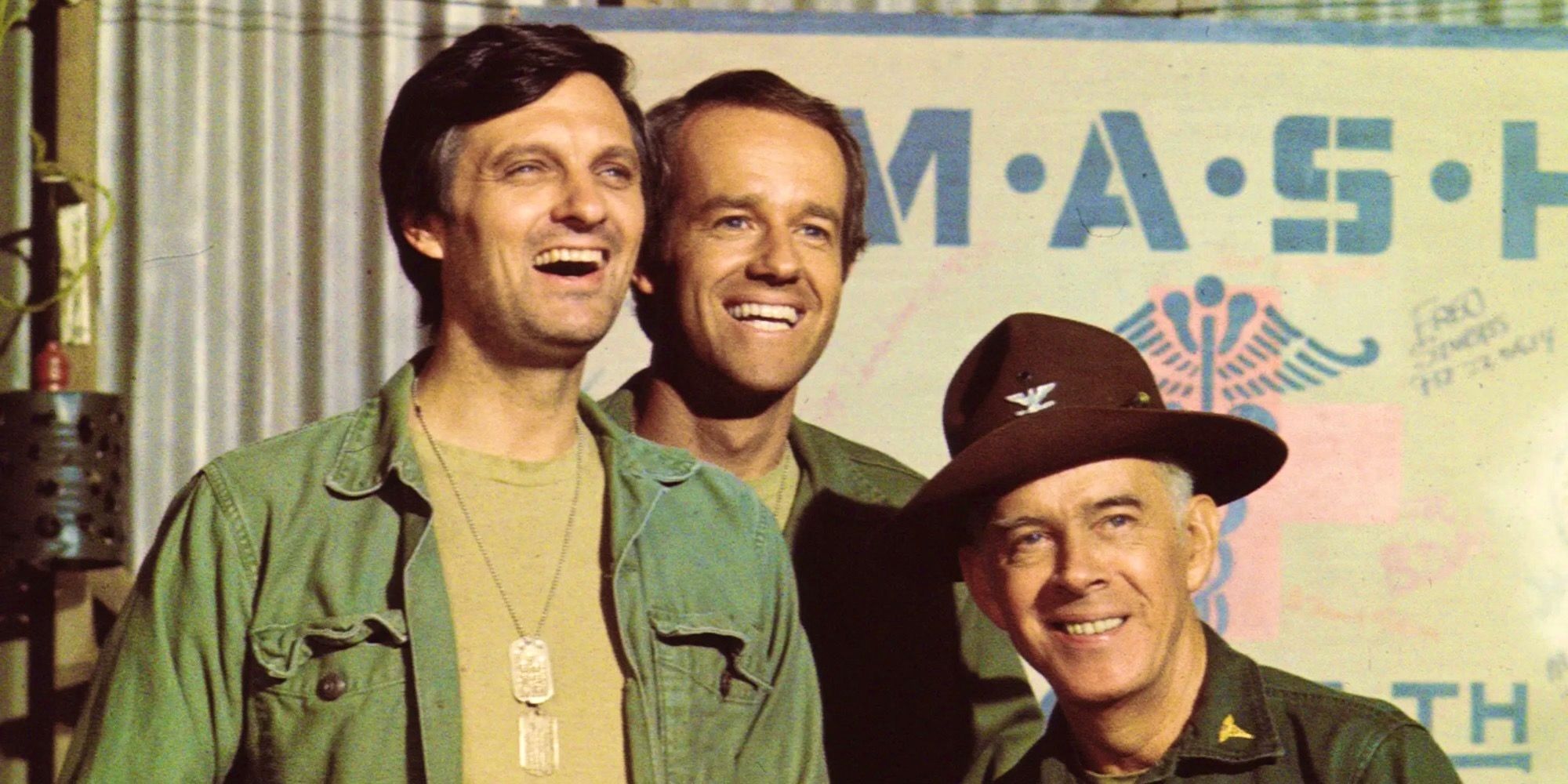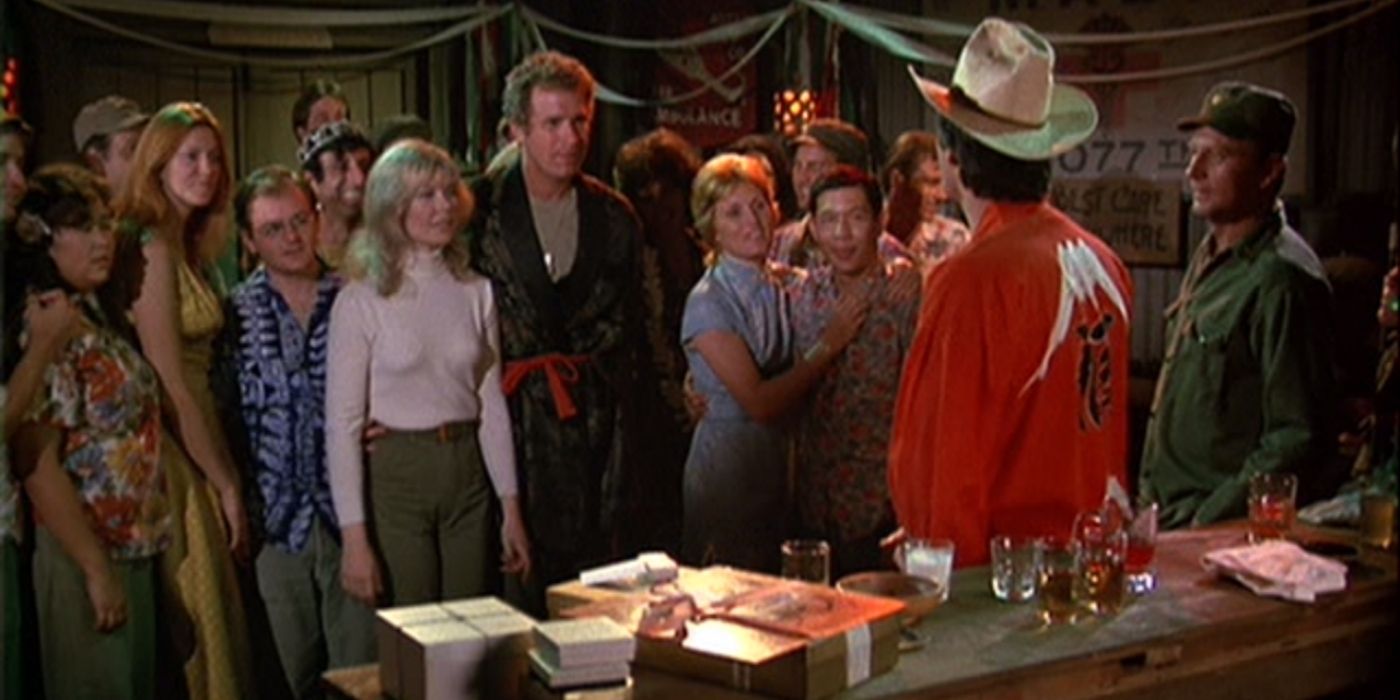M*A*S*H always had a complicated relationship with its laugh track, and here's why it finally ditched it towards the end of its run. M*A*S*H was originally a novel by author Richard Hooker - based on his experiences as a doctor in the Korean War - before being adapted into an acclaimed Robert Altman movie. The M*A*S*H TV show started as more of a sitcom, focusing on the hijacks of Alan Alda's "Hawkeye" Pierce and Wayne Rogers' "Trapper." It later became a dramedy, dialing back the wackiness to explore the toll the war took on its characters, including their trauma and PTSD.
M*A*S*H broke new ground for future shows and became one of the first sitcoms to challenge the laugh track. Considering the setting, showrunners Larry Gelbart and Gene Reynolds didn't want a laugh track at all, considering it inappropriate. Since comedies of the era almost always came with one, they were overruled. That said, CBS agreed to drop the track over operation room sequences. The laugh track used in M*A*S*H was also more subdued and became quieter in later seasons. More dramatic episodes like season 4 finale "The Interview" dropped it entirely, and by the final season, nearly every episode was laugh track free.
Sitcoms Before MASH Always Used A Laugh Track
Some modern sitcoms like The Big Bang Theory still use the traditional laugh track, but during the 2000s, canned laughter became less and less common. Evergreen sitcoms such as The Office or Parks And Recreation went without one, and they've increasingly become a thing of the past. The difference with M*A*S*H is that laugh tracks were essentially a requirement during this period. Early shows like I Love Lucy were filmed before live studio audiences, so the addition of laughter during jokes made sense. The perceived wisdom in the years that followed was that sitcoms needed canned laughter to guide viewers.
M*A*S*H was one of the earliest comedies to challenge this notion. It may have been a sitcom, but revolving around a hospital surgical unit didn't lend itself to a traditional laugh track (which didn't help reboot Fairly Odder Parents). In overseas broadcasts, such as its airing on the BBC, the canned laughter was omitted. In fact, when one episode was broadcast accidentally complete with the track, this led to multiple viewer complaints. Many classic network comedies after M*A*S*H retained laugh tracks, but several shows started to drop it too.
MASH Is Spoiled By The Laugh Track
M*A*S*H was still finding its feet in its early seasons, with these earlier episodes being better suited to the laugh track. DVD releases of the show later came with the option to include laughter or not, with many fans opting for the latter. This can lead to some noticeable dead air in early seasons as they were edited to leave space for the "audience" reaction, but as M*A*S*H - where Trapper John left after three seasons - evolved into a drama, it's better without one. M*A*S*H respects viewers enough to know they'll get a joke without needing it to be highlighted. The show's setting and blood-soaked depictions of surgery just didn't mesh with a laugh track, which is why it was gradually phased out.


